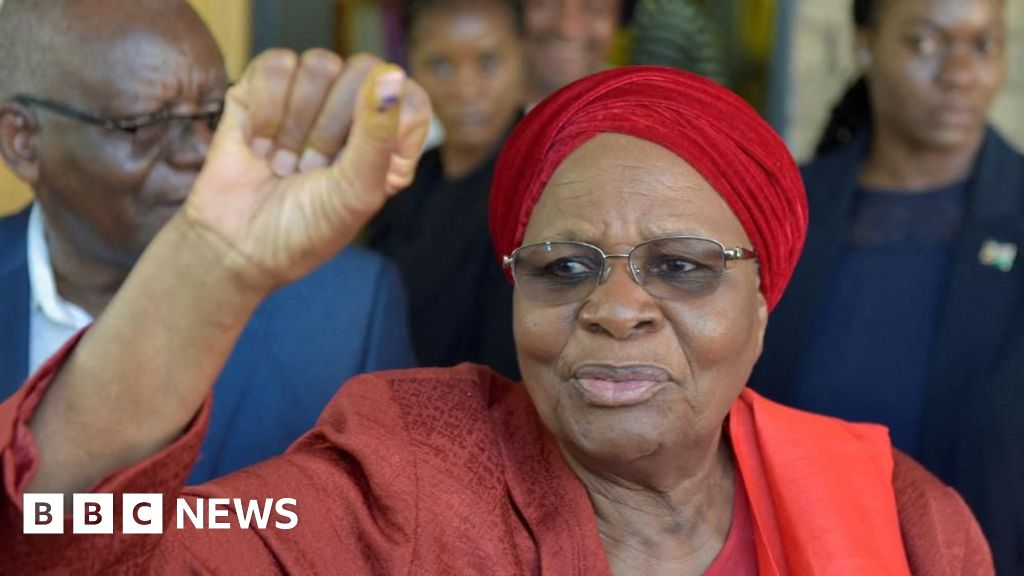Netumbo Nandi-Ndaitwah, from the governing South West Africa People’s Organisation (Swapo), has been voted in as Namibia’s first female president after last week’s disputed election.
The electoral commission said she had won more than 57% of vote, with her closest rival Panduleni Itula, getting 26%.
Following logistical problems and a three-day extension to polling in some parts of the country, Itula said the electoral process was “deeply flawed”.
His Independent Patriots for Change (IPC) party said it would challenge the results in court.
Most opposition parties boycotted the results announcement on Tuesday evening in the capital, Windhoek, the Namibian newspaper reports.
Windhoek is reported to be calm on Wednesday, with neither celebrations nor protests and people carrying on with their normal lives.
After the announcement of her victory, Nandi Ndaitwah said: “The Namibian nation has voted for peace and stability.”
Swapo has been in power in the large but sparsely populated southern African country since independence in 1990.
A party stalwart, Nandi-Ndaitwah, who is currently the vice-president, is a trusted leader having served in high government office for a quarter of a century.
South Africa’s President Cyril Ramaphosa extended his congratulations to Nandi-Ndaitwah on X on Wednesday.
“Your election as fifth President of the Republic and the first woman in our region to hold this high office is a testament to democracy and its ability to transform our societies,” his statement read.
Once sworn in, she will join an exclusive club as at the moment Tanzania’s Samia Suluhu Hassan is Africa’s only female president.
In the parliamentary elections held at the same time, Swapo narrowly held on to its majority, winning 51 of the 96 elected seats – a loss of 12. The IPC won 20 seats, and will be the official opposition.
Tirivangani Masawi, a political journalist based in Windhoek, told the BBC Newsday programme the election was Swapo’s “worst performance since independence”.
A trained dentist, Itula is seen as more charismatic than Nandi-Ndaitwah and managed to dent Swapo’s popularity in the last presidential election in 2019, reducing its vote share to 56% from 87% five years earlier.
The IPC said it would “pursue justice through the courts” and has encouraged people who felt that they had been unable to vote because of mismanagement by the electoral commission to go to the police to make a statement.
Claus Goldbeck, from the IPC, told the BBC voting was an “organisational mess”.
Some people were sent home after standing in line for 14 hours because there weren’t enough ballot papers, and scanners broke down at numerous polling stations.
“The Electoral Commission of Namibia [ECN] had four years to fix things,” he said.
The ECN admitted to failures in the organisation of the votes and ballot shortages. But the chairperson, Elsie Nghikembua, denied any allegations of fraud.
“I urge all Namibians to embrace the results with the spirit of unity, diversity, understanding and reconciliation,” she said.
Swapo led the struggle for nationhood against apartheid South Africa. Ahead of last Wednesday’s general election there had been some speculation that it would suffer the fate of other liberation parties in the region.
South Africa’s African National Congress lost its outright parliamentary majority in May and the Botswana Democratic Party was kicked out of power after nearly six decades following October’s election.

